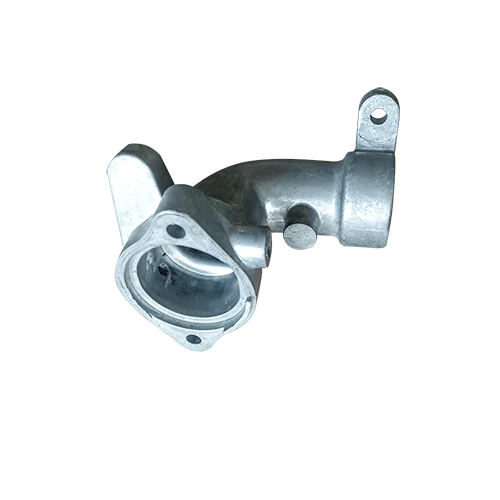Mobile:+86-311-808-126-83
Email:info@ydcastings.com
custom steel casting
Custom Steel Casting Precision and Innovation in Manufacturing
In the modern manufacturing landscape, the demand for high-quality, durable, and efficient materials has led to increased interest in custom steel casting. This process, which involves pouring molten steel into a mold to form specific shapes and components, is crucial for industries ranging from automotive and aerospace to construction and energy. Custom steel casting not only provides structural integrity but also allows for intricate designs that meet the precise specifications of various applications.
Understanding Custom Steel Casting
Custom steel casting is a manufacturing process that transforms raw steel into usable components through a series of steps involving design, melting, pouring, and finishing. The process begins with the development of a casting design, which is tailored to the specific needs of the customer. This design phase often involves the use of advanced software tools that simulate flow patterns and thermal properties to ensure that the final product meets the required standards of performance and durability.
Once the design is finalized, the next step is to create a mold. Molds can be made from various materials, including sand, metal, or ceramic, depending on the complexity and volume of the casting needed. The choice of mold affects the surface finish and dimensional accuracy of the final product. High-quality molds ensure that the casting process yields components that are not only strong but also exhibit excellent surface finish.
The heart of the custom steel casting process is the melting and pouring of steel. This is typically done in an industrial furnace, where steel is heated to extremely high temperatures until it transitions into a molten state. The molten steel is then poured into the prepared molds. This stage requires precision and control, as any variations in temperature or pouring speed can lead to defects in the final product.
After the steel has cooled and solidified, the molds are removed, revealing the cast component. Additional finishing processes, such as machining, grinding, or sandblasting, may be necessary to achieve the desired specifications. This final touch ensures that the component meets the necessary tolerances and surface conditions for its intended use.
Advantages of Custom Steel Casting
custom steel casting

One of the primary advantages of custom steel casting is its versatility. This method can produce components of various sizes and complexity, from small intricate parts to large structural components. Moreover, the use of steel, known for its strength and durability, makes these castings ideal for demanding applications where performance is crucial.
Additionally, custom steel casting allows for the incorporation of design features that may be difficult or impossible to achieve using traditional manufacturing methods. For example, complex geometries can be produced with ease, which can lead to lighter and more efficient designs. This flexibility not only enhances product performance but also enables engineers and designers to innovate and push the boundaries of what is possible in product development.
Applications of Custom Steel Casting
Custom steel castings find applications in various industries. In the automotive sector, components like engine blocks, transmission cases, and suspension parts are commonly produced through this process. The aerospace industry utilizes custom steel castings for critical components that must withstand extreme conditions while maintaining structural integrity. In construction, custom castings can be found in tools, frames, and infrastructure components that require exceptional strength and longevity.
Moreover, custom steel casting plays a vital role in the energy sector. Components such as turbine housings, valves, and pipeline fittings, which must endure high pressures and corrosive environments, are often produced through this method. The ability to tailor the material properties, design, and dimensions to specific requirements makes custom steel casting an invaluable resource in these demanding industries.
Conclusion
In conclusion, custom steel casting is a vital manufacturing process that combines precision, innovation, and versatility. By allowing manufacturers to create components tailored to specific requirements, this process not only enhances performance but also drives advancements in design and efficiency across various industries. As technology continues to evolve, custom steel casting will remain a cornerstone of modern manufacturing, providing essential solutions that meet the ever-growing demands of the global market.
-
Why Should You Invest in Superior Pump Castings for Your Equipment?NewsJun.09,2025
-
Unlock Performance Potential with Stainless Impellers and Aluminum End CapsNewsJun.09,2025
-
Revolutionize Your Machinery with Superior Cast Iron and Aluminum ComponentsNewsJun.09,2025
-
Revolutionize Fluid Dynamics with Premium Pump ComponentsNewsJun.09,2025
-
Optimizing Industrial Systems with Essential Valve ComponentsNewsJun.09,2025
-
Elevate Grid Efficiency with High-Precision Power CastingsNewsJun.09,2025











